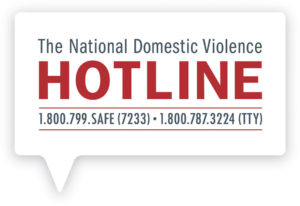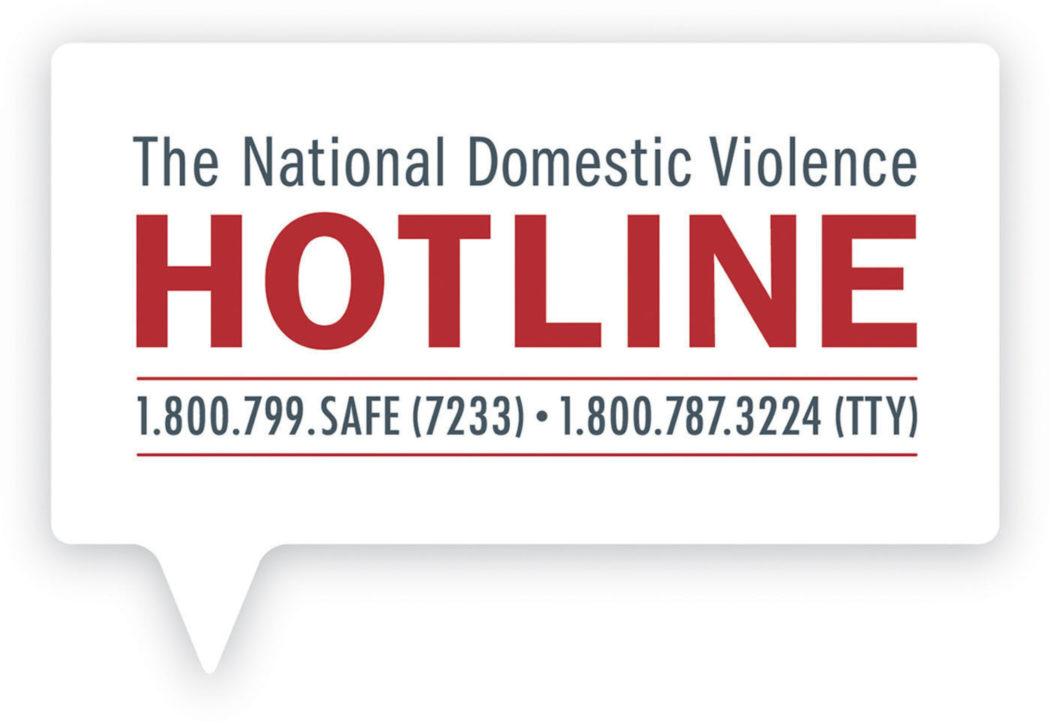
National Domestic Violence Hotline logo — Operating around the clock, seven days a week, 24/7, confidential and free of cost, the National Domestic Violence Hotline (NDVH) provides lifesaving tools and immediate support to enable victims to find safety and live lives free of abuse. Callers to the hotline 1-800-799-SAFE (7233) can expect highly trained experienced advocates to offer compassionate support, crisis intervention information and referral services in more than 170 languages. Visitors to www.NDVH.org can find information about domestic violence, safety planning, local resources, and ways to support the organization.(PRNewsFoto/The National Domestic Violence Hotline)
October is one of my favorite months of the year for a lot of reasons. The leaves start changing color, and the air begins to cool. Pumpkin and butternut squash are in season, making way for some of my favorite seasonal dishes. And it’s finally socially acceptable for me to bundle up in my favorite sweaters make cute costumes for my cats.
But October is also a wonderful time because it’s Relationship Violence Awareness Month. While that may seem like a pretty upsetting topic to talk about for a whole month, Relationship Violence Awareness Month is actually a time of hope for me—hope for prevention, hope that survivors will get the resources they need, and hope for cultural healing. It’s a time to focus on healthy relationships and to really think about how we serve ourselves and our partners in our daily interactions.
So as we begin this month, let’s take some time to examine the relationships in our lives. According to Break the Cycle, here are some of the signs of an unhealthy or abusive relationship:
- Checking cell phones, emails or social networks without permission
- Extreme jealousy or insecurity
- Constant belittling or put-downs
- Explosive temper
- Isolation from family and friends
- Making false accusations
- Constant mood swings towards you
- Physically inflicting pain or hurt in any way
- Possessiveness
- Telling someone what they can and cannot do
- Repeatedly pressuring someone to have sex
These warning signs don’t just apply to adults. According to the Center for Disease Control and Prevention, about 23% of women and 14% of men who experience intimate partner violence do so before the age of eighteen. It is important to remember that people of all ages can experience relationship violence, and that relationship violence can be (but is not limited to) physical, emotional, financial, verbal, and sexual. (For more resources about teen dating violence, please visit https://www.teendvmonth.org/.) If you think that you or a friend may be experiencing relationship violence, you can contact the National Domestic Violence Hotline at 1−800−799−7233 or your local domestic violence shelter for help.
It’s always important to know what the positive end of the spectrum looks like, too. Even if you feel like you aren’t experiencing any of the above warning signs in your relationship, you may want to consider whether the following characteristics of a healthy relationship are true for you—or if you fall somewhere along the spectrum. The National Domestic Violence Hotline provides an incredibly useful explanation of the relationship spectrum (healthy, unhealthy, and abusive). According to the Hotline, these are the signs of a healthy relationship:
- Communicating: You talk openly about problems and listen to one another. You respect each other’s opinions.
- Respectful: You value each other as you are.
- Trusting: You believe what your partner has to say. You do not feel the need to “prove” each other’s trustworthiness.
- Honest: You are honest with each other, but can still keep some things private.
- Equal: You make decisions together and hold each other to the same standard.
- Enjoying personal time: You enjoy spending time apart, alone or with others. You respect each other’s need for time apart.
- Making mutual sexual choices: You talk openly about sexual and reproductive choices together. All partners willingly consent to sexual activity and can safely discuss what you are and are not comfortable with.
- Economic/financial partners: You and your partner have equal say with regard to finances. All partners have access to the resources they need.
- Engaging in supportive parenting: All partners are able to parent in a way they feel comfortable with. You communicate together about the needs of the child(ren), as well as the needs of the parents.
This month, set aside time to really think about your relationships—not just romantic relationships, but relationships with your parents, your friends, your children, your peers. Think about how these relationships are serving you. What do you love most about these relationships? If you could change anything about them, what would you change? Meditate on your values, on how you interact in terms of bodily autonomy, communication, privacy, intimacy, affection, finances.
As bell hooks writes, love is “a radical political tool, an act of resistance”. Let’s spend this month contemplating love—our greatest act, our greatest choice, and our greatest tool to disarm oppression. Let’s start at home.
For LGBTQ+ folks looking for healthy relationship resources, please take a look at the National Domestic Violence Hotline’s LGBTQ+ specific resources and this free healthy relationship module offered through UNC and available online to all community members: https://lgbtq.unc.edu/programs/educational/healthy-relationships-education.

There are no comments
Add yours